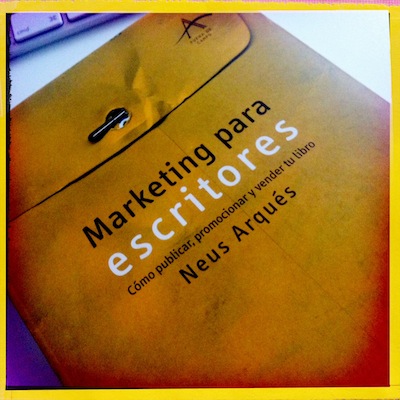Diario de Viena, V: la paz de Innsbruck
Vienna Diary, V: the peace of Innsbruck
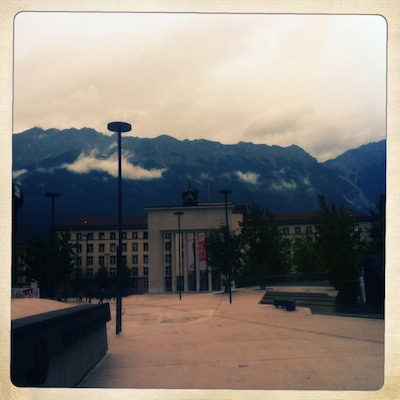
La piedra caída de más de tres mil edificios, casi setenta años después, convertida en polvo y ceniza, omnipresente ceniza, apenas hubiesen supuesto unos centímetros más bajo la nieve dura y generosa de la ciudad; algo que poco podría, en cualquier caso, alterar la vertiginosa impresión de las eternas montañas de frío y de hierro que rodeaban el tan buscado misterio.
Los días pasaban, las noches se alargaban, el tiempo se agotaba.
Tan solo quedaba un lugar en dónde buscar; acaso el lugar en el que, desde un principio, toda respuesta se hallara, quizá el lugar que tanto se había esforzado por querer olvidar.
Tan solo quedaba, pues, emprender ese viaje del que tantos no habían vuelto, y buscar en un pasado de terrores denodados, angustias aberrantes y silencios derrotados.
The scattered debris of more than three thousand buildings, almost seventy years later, turned into dust and ash, everywhere the ash, would barely amount to a few centimetres under the hard, generous snow that covered the city, something that could not, in any case, shadow the vertigo-inducing presence of the eternal mountains of cold and iron that surrounded the coveted mystery.
Days passed by, nights grew longer, time was running up.
There was only one place in which to search, maybe the place that, from the beginning, every answer was to be found, maybe the place he had wanted to forget so eagerly.
It was only left, then, to start that trip from which so many had not returned, to so research in a past of tired terrors, aberrant anguish and defeated silences.
Diario de Viena, IV: el espejo de Salzburgo
Vienna Diary, IV: the mirror in Salzburg
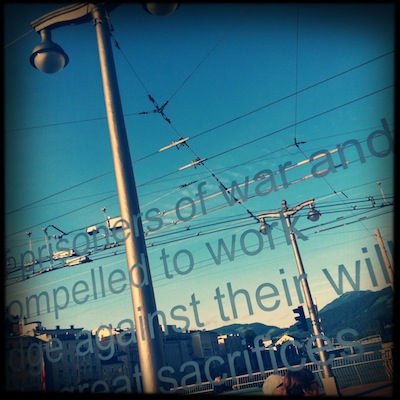
Según transcurría el camino, a medida que los días pasaban, el enigma parecía soterrarse más y más bajo las múltiples capas de tierra y años, que parecían borrar todo rastro.
Estuvieron aquí también, sí.
¿Cómo de fuerte resuena el eco de aquellos que tan solo pervivieron como una memoria de los tiempos del frío, del esfuerzo y de la muerte?
¿Será posible, en algún fin, que sus fantasmas se oculten, que sus vidas se olviden, que sus voces se apaguen?
¿Será ello posible, pese a que sus presencias tiñan, aparentemente para siempre, la visión de todas las cosas en derredor, como tinta caída en el agua, como ceniza volándose al viento, como un recuerdo aleve velado por la noche y la niebla…?
As the road went by, as the days passed, the mystery seemed to be buried lower and lower under layers of earth and years, which seemed to erase every trail.
They were here too, yes.
How strongly will keep resounding the echo of those that only pervived as a memory of the times of cold, labour and death?
Will it be ever possible that their ghosts hide, their lives are forgotten, their voices fade?
Will that ever be possible, despite their presence dyeing the vision of every thing around, as ink spreading in water, as ashes flying in the wind, as a reminder veiled on by the night and the mist…?
Diario de Viena, III: Luz reflejada
Vienna Diary, III: Reflected light
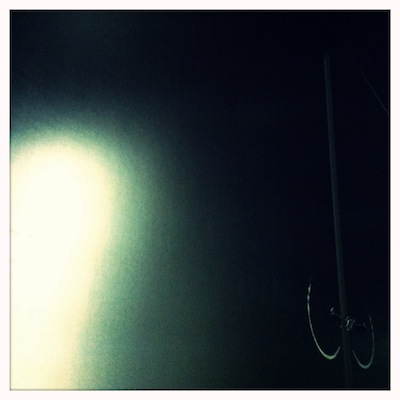
El túnel tocó a su fin, como el camino seco y seguro que su única dirección marcaba.
Pocos pasos ante sí, un firmamento nacido de la lluvia, en que las farolas se sentían como lunas difusas y algún coche al pasar recordaba a una estrella caída.
El encargo estaba claro, mas no el cómo abordarlo; al menos, había escapado de esa inacción temerosa, de ese letargo dañino que es la espera, esa locura latente que resulta de toda tensión largo ha sostenida.
Ahora ya no cabían los recuerdos, los avisos, las dudas o el lastre de unos viejos sentimientos.
Ahora tenía toda una ciudad por delante.
The tunnel ended, as the dry, safe road that its only direction marked.
A few steps ahead of him, a firmament born of rain, in which street lights felt like diffuse moons and the odd car left a fallen star on its wake.
The assignment was clear, not so much how to tackle it; at least, he had escaped that dreadful inaction, that hurtful lethargy which is the wait, that latent madness which results of every tension for too long sustained.
Now there was no room for memories, warnings, doubts or the burden of old feelings.
Now he had the wide city ahead.
Diario de Viena, II: Congregación
Vienna Diary, II: Rendez-vous

¿Para qué esperar más? Cuando el mundo seguía girando, las voces pasaban de largo y ni las tan prietas manos guardaban el leve calor del denso café que un par de canciones atrás, aún le consolaba.
Ni siquiera el agua grisácea que acolchaba el suelo enlosado alcanzaría apenas a helarse esa noche; antes se escurriría, como mercurio entre dedos manchados, sin dejar otra marca tan leve como una caricia furtiva sobre la piel del amante dormido.
Para qué esperar, si los dias pasaban, las vigilias se arrastraban y las canciones terminaban.
Para qué esperar, pues, si las palabras no alcanzaban.
Why to keep waiting? When the world kept turning, the voices walked past and not even the firmly clasped hands were able to slightly warm the dense coffee that a few songs ago, still consoled him.
Not even the gray water padding the cobblestones was to freeze that night; before, it would drain as mercury between stained fingers, leaving no more trace than that of a furtive caress on the skin of a sleeping lover.
Why to keep waiting, if days passed by, wakes kept dragging and songs ended.
Why to keep waiting, then, if words were not enough anymore.
Diario de Viena, I: Tañido
Vienna Diary, I: Tolling

La llegada se produjo en medio de la noche, cuando toda pisada suena demasiado alta y cuando toda respiración parece querer delatarnos.
El apartamento se mostraba extraño, gélido en su intención de no resultar hospitalario, y su dueño siquiera había olvidado allí nada por lo que sentir cualquiera nostalgia.
El cansancio y la prisa le apelmazaron los pensamientos, y dormida fue, asi, esa velada de peligro y urgencia que tan solo atrajo calma a los sueños cuando las campanas de la ya lejana catedral anunciaron la muerte de las más oscuras horas.
Solo quedaba, entre el frío y la humedad, un calor con que llenar la entraña: imágenes fugaces, casi olvidadas y apenas ya entrevistas, de un cuerpo perdido, lejano, querido.
The arrival happened in the middle of the night, when every footstep sounds too loud and when the whisper in every breath seems decided to give us away.
The apartment looked like a stranger's, frigid in its intent of not being hospitable in any way, and its owner had not evet forgotten there anything to be nostalgic about.
Tiredness and urgence slowed down his thoughts, and so it was asleep that wake of danger and rush that only attracted calm to dreams when the bells of the by now far away cathedral announced the death of the darkest of hours.
It was only left, between cold and dampness, one kind of warmth with which to fill his guts: brief, fleeting, almost forgotten images, barely glimpsed, of a lost, distant and loved body.
El último Rafael en el Museo del Prado
The late Raphael at the Prado Museum
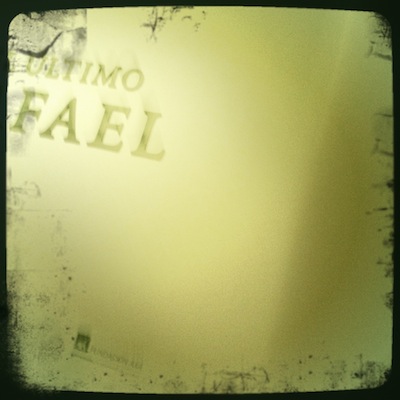
En pocas ocasiones se tiene la oportunidad de contemplar juntas las obras de uno de los Maestros más influyentes del Renacimiento, incluso las de un período tan enigmático como la última etapa vital de Rafael.
Si algo destaca de entre dichas obras, es la verdad y autenticidad que destilan sus rostros, y mucho más en los retratos de sus amigos que en las obras religiosas, por su sinceridad y humanidad.
Y entre todos ellos, ciertamente hay uno en concreto que, por sí mismo, resulta una de las cimas de la pintura universal; una obra de la que se pueden escribir volúmenes sobre su prodigioso colorido, su elusiva pincelada o su magistral equilibrio compositivo; una obra frente a la que podríamos pasar años, tratando de descubrir el misterio de una mirada que solo los mejores amigos pueden entender.
In seldom ocassions it is possible to contemplate together the works of one of the most influential Renaissance Masters, and even more those from such an enigmatic period as Raphael's late phase.
If something can be highlighted among those works is the truth and autenticity that springs from its painted visages, much more in the portraits of his friends that in the religious themes, because of its closeness, sincerity and humanity.
And among all of them, there is one which, by itself, has become one of the summits of universal painting; a masterpiece which volumes can be written about, because of its prodigious colour, its elusive brushtroke work or its masterful compositive equillibrium; a work of art in front of which we could spend years just trying to discover the mystery of a stare that only best friends can truly understand.
Márketing para escritores, por Neus Arqués
Marketing for writers by Neus Arqués
Una de las cosas que, en su día, me provocaban inseguridad a la hora de contemplar mi futuro como escritor, tenían que ver con ese momento en que el editor iba a recibir mi texto y debía evaluarlo para considerar su publicación.
Afortunadamente, dichas dudas se esfumaron cuando me tropecé con Marketing para Escritores, un libro cuyo título puede asustar a algunos (¿marketing? ¿vender? ¿yo?), pero al que, si dais una oportunidad, encontraréis especialmente útil para elaborar elementos como la propuesta editorial, un título adecuado o la auto-promoción de vuestros libros en las redes sociales.
¿Funciona? Tan solo puedo decir que apliqué los consejos de "Márketing…" para tres propuestas editoriales y ahora… son mis tres libros publicados.
Back in the day, one of the things that made me feel insecure when thinking about my future as a writer were related to that moment in which a publisher would receive my text and would then evaluate it for publication.
Luckily, those doubts vanished when i found Marketing for Writers, a book whose title might frighen off some (marketing? selling? me?), but that if given a chance, you will find it specially useful to work on factors like the publishing proposal, an adequate title for your book or the self-promotion of your books in social media.
Does it work? I can only say that I applied every piece of advice from Marketing… to three publishing proposals and now they have become my three published books.
La maleta mexicana en el Círculo de Bellas Artes
The mexican suitcases at the Círculo de Bellas Artes
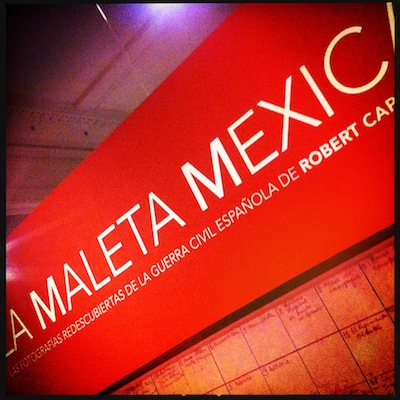
Una de las razones por las que siempre me ha fascinado la fotografía, y mucho más la que representa el siglo pasado, es porque, aunque a veces lo olvidamos por lo evidente que parece, los que nos miran desde esas fotos son las personas que vivían en ese momento y en ese lugar.
Algo que, cuando se trata de fotografía de guerra, y representa a ciudadanos como nosotros, que vivían en paz sus vidas y, de un día para otro, se vieron huyendo de las bombas, abatidos por las balas, refugiados de la pérdida de todo lo que tenían…
Tan solo podemos recordar que es nuestra responsabilidad impedir que algo así nos vuelva a suceder.
Convirtamos, pues, ese ejercicio de memoria en una reflexión para el presente, y reforcemos cada día nuestro compromiso cívico y ciudadano, de vivir en paz.
One of the reasons why photography has always fascinated me, and much more the kind that represents last century is that, even though we sometime forget it (so evident it seems), the people that looks at us from those pictures are the people that actually lived in that place and time.
Something that, when the issue is about war photography, and one which pictures citizens like us, living their lives in peace and suddenly forced to run away from the bombs, chased by bullets, taking refuge from the loss of everything they had…
We just can remember that it is our responsibility that something like that will not happen again.
Let us turn, then, that exercise in memory in a reflection for the present and let us reinforce each day our civic duty of living in peace.
Zíngara en la Gran Vía
Zingara at the Gran Vía
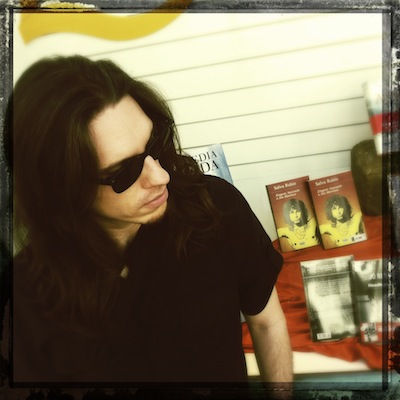
Hace unos días, caminando por la Gran Vía madrileña, me llevé una de las sorpresas más enormes y satisfactorias que puede vivir un escritor.
¡Mi novela, "Zíngara: buscando a Jim Morrison", en el escaparate de la librería más grande de Madrid!
Imaginad la cara que se le queda a uno, y sobre todo, lo mágico de esos escasos segundos que transcurren, llenos de electricidad, entre el momento en que los ojos lo ven, el cerebro lo asimila realmente y la sonrisa, la confusión, la satisfacción y el trabajo realizado… cobran todo el sentido.
Allí, de pie, mirando la novela, tan solo podía pensar en lo mareante que resulta pensar en cuantos cientos de personas lo ven al pasar cada día… y tan solo puedo estar agradecido por ello.
A few days ago, walking along the madrilenian Gran Vía, I stumbled upon one of the biggest, most satisfactory things a writer can live.
My novel, 'Zingara: finding Jim Morrison, in Madrid's biggest shop's window!
Just imagine my face then, and above all, how magical were those brief, electrical seconds in which the eyes do see, the brain really assimilates it and then the smile, the confusion, the satisfaction and all the hard work… truly make sense.
So while I was there staring at the novel, I just could think in the dizzying figures of the hundreds of people that see it every day… and I can just feel thankful for that.
Hopper en el Museo Thyssen-Bornemisza
Hopper at the Thyssen-Bornemisza Museum
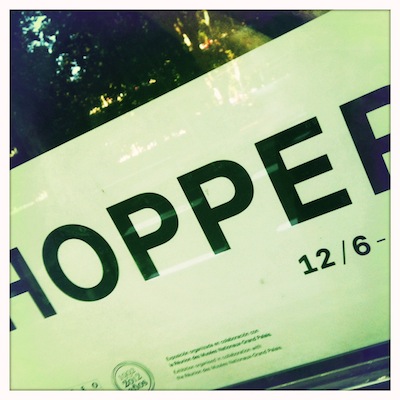
Edward Hopper (1882-1967) se ha ganado un puesto imborrable en el imaginario colectivo como el pintor de la soledad ciudadana, de las figuras abstraidas, de las miradas perdidas, de la alienación cotidiana…
Sin embargo, personalmente entiendo que definir su obra exclusivamente en estos términos representa una visión fácil y cómoda por tópica, pero reduccionista y poco justa con un pintor que nunca dejó que tales temas encerraran su creatividad.
Así pues, la exposición del Thyssen-Bornemisza nos presenta una oportunidad para conocer a eos "otros" Hopper: fascinado por la perspectiva, marcado por Cézanne y Degas, dividido por la pincelada matérica, fiel a su gama de color y atento a las más leves variaciones de la luz de un ya eterno día de verano.
Edward Hopper (1882-1967) has earned his rightful place in the collective imagination as the painter of lonely citizens, absorbed figures, lost stares, everyday alienation…
Nonetheless, I personally think that defining his work exclusively in these terms represents a comfortable, easy, topical vision, and one that is reductionist and unfair with a painter that never let those themes cage his creativity.
To prove that, the Thyssen-Bornemisza exhibition presents us with an opportunity to meet those 'other Hoppers': fascinated by perspective, marked by Cézanne and Degas, divided by materic brush strokes, loyal to his own color range and always registering the slightest light variations of a by now eternal summer day.
